Every poultry farmer should know what grass can be given to domestic quail. After all, not all plants are equally useful. The main thing is not to feed the birds poisonous, rotten, moldy herbs. Any food given to quails must be healthy and of high quality. Herbs are a source of vitamins and minerals; their presence in the diet increases the immunity of birds, makes the yolk of eggs brighter, and the meat more tender.
What grass do quails eat?
The main food for quails is crushed grain (corn, wheat, barley). Plants can be given to birds as a vitamin supplement. Free-range quails themselves find the herbs they like.Birds love to peck leaves of dandelion, plantain, clover, alfalfa, and cereal plants. In summer, quails often wander into the garden and eat young wheat sprouts, cabbage leaves, lettuce, parsley, sorrel, dill, mint, and basil.
If quails are kept in a fenced yard, then it is advisable for them to add greens to their food from the third day of life. First, the chickens are given scalded and finely chopped nettles and green onions. It is useful to feed quails with woodlice, dandelions, alfalfa, and clover. True, herbs, that is, green food, are introduced into the birds’ diet gradually and are initially given in minimal quantities.
It is important to remember that excess dandelion leaves can cause poisoning in quails. Nettles must be scalded with boiling water before being given to birds. Quails enjoy eating finely chopped beet tops, lettuce, and young cabbage.
Medicinal plants not only replenish the body with vitamins, but also treat quails for various diseases. True, some herbs cannot be given to birds raw, but decoctions can be prepared from them. In case of illness, quails are soldered with medicinal solutions. For example, for intestinal diseases, a decoction of St. John's wort and chamomile is given, and for calming, a decoction of lemon balm and mint is given. To prevent helminthic diseases, it is useful to add tansy and yarrow to the feed.
It is important to remember that, in addition to health benefits, the presence of greens in the diet of quails affects the color of egg yolks, giving them a rich orange hue. It is useful to give laying hens alfalfa, scalded nettles, dandelions, spinach, and basil. Birds that lay eggs must eat white and red cabbage, nasturtium, and also ripe vegetables - tomatoes, carrots, pumpkin.
If chicks try greens for the first time, it is advisable to give them slightly dried. It is better to collect the grass in bunches and hang it, otherwise the quail will trample it. You can chop the plants and add them to food. For the winter, nettles, clover, alfalfa, chamomile, St. John's wort, and dill are harvested for laying hens.
What is forbidden to give?
Quails are not allowed to feed poisonous plants. It is advisable that herbs that cause poisoning are not present in the area where birds walk. Before releasing quails into the meadow, you need to mow down all poisonous plants. When birds see a particular herb for the first time, they are tempted to try it. It is recommended to protect them from pecking at poisonous vegetation.
List of plants that are prohibited from feeding quails:
- jasmine, elderberry - contain toxic substances;
- iris, clematis, castor beans, lilies of the valley, crocuses - cause diarrhea and vomiting;
- hemp, poppy, periwinkle - hallucinogens;
- Euphorbia - causes oral dermatitis;
- tops of nightshade plants (tomatoes, peppers, potatoes) - has a poisonous effect;
- rhubarb, henbane, hemlock, buttercups, foxglove, shepherd's purse - contain toxic substances;
- fern - causes vomiting and diarrhea;
- ivy - leads to seizures;
- boxwood, hemlock, dope, celandine, hellebore, nightshade, lumbago - contain toxic substances;
- kukol - causes diarrhea, cramps;
- ergot (fungi on cereals) - leads to drooling, diarrhea, cramps;
- burdock, horse chestnut, broom, belladonna - cause poisoning.
True, it can be difficult to protect quails that roam freely around the site from poisonous plants. Birds can go anywhere: into the garden, into a flower bed, into any part of the garden.It is better to build a walking yard for them, that is, to fence off some area with a chain-link mesh. Quails have an organism that is very sensitive to poisonous herbs. If birds roam freely around the local area, you should always monitor their movements.
Signs of improper feeding
When quails eat prohibited plants, a mild eating disorder or severe poisoning may occur. If poisonous substances enter the birds' bodies, the birds may die. Sometimes the poisoning is so severe that the quails do not have time to show any symptoms. Birds die at lightning speed for no apparent reason.
You should be wary if quails are inactive, sit in one place for a long time, and are reluctant to eat food. Healthy individuals usually have a good appetite and a cheerful mood. Symptoms of poisoning: quails' paws turn blue, patients refuse to eat, drink a lot, they develop diarrhea, vomiting, and excessive salivation. Poison in the body of birds often leads to convulsions, paralysis of limbs and sudden death.
In case of poisoning, quails are given flaxseed decoction and crushed activated carbon. Water with sugar quickly relieves intoxication. You can feed the birds milk. It is important that the crop and stomach of poisoned quails are quickly freed of their contents. Vegetable oil, as well as a decoction of chamomile or nettle, are considered good carriers. Yogurt or kefir will help restore the intestinal microflora.
True, diseases in quails occur not only due to poisoning by poisonous plants. Sometimes birds get sick if they are not fed correctly. Chicks hatched from eggs should be given finely chopped boiled eggs, cottage cheese, and millet.On the third day, chopped onion feathers can be added to the food. To prevent intestinal disorders and infectious diseases in chicks, a feed antibiotic (Baytril) is added to the drinking water.
Adult quails are given crushed grain. Birds readily eat corn, wheat, barley, oats, and millet. Cereals are the main food for quails. As an additive they give chalk, salt, premixes, bone meal, fish meal and always greens and vegetables. Birds are fed at least 3 times a day. Food is poured into feeders for them. Uneaten leftovers are taken away after 3-4 hours. In addition to dry grain mixtures, quails are given boiled potatoes and wet mash. Adequate nutrition is the key to healthy poultry.
If quails do not receive enough nutrients, they grow slowly and begin to get sick. Lack of vitamins and minerals, which are present in sufficient quantities in herbs, affects the appearance of birds. Quails' feathers fall out, cheesy deposits appear in their eyes, fluid comes out of their nose, the skin on the soles of their feet peels off, and paralysis of the limbs subsequently develops.
To prevent vitamin deficiency in summer, it is recommended to give birds green plants. In winter, it is better to add pharmaceutical vitamin and mineral preparations to drinking water (vitamins A, D, E, K, C, group B are required).

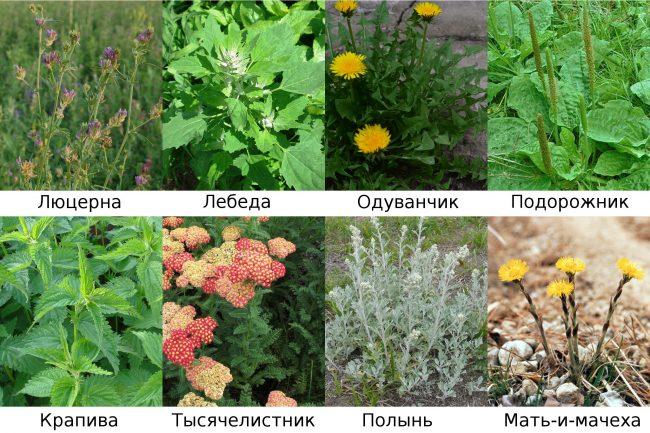

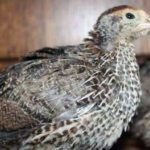
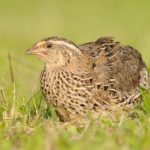
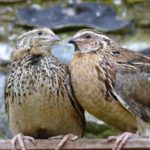

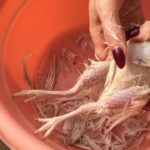

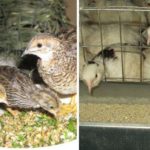
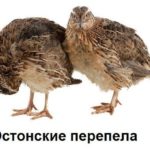

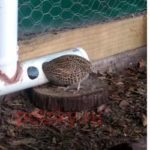
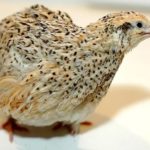
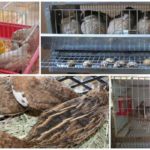
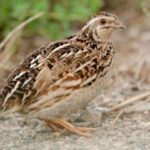
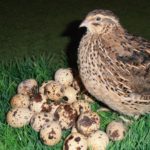

Thank you for the useful information.